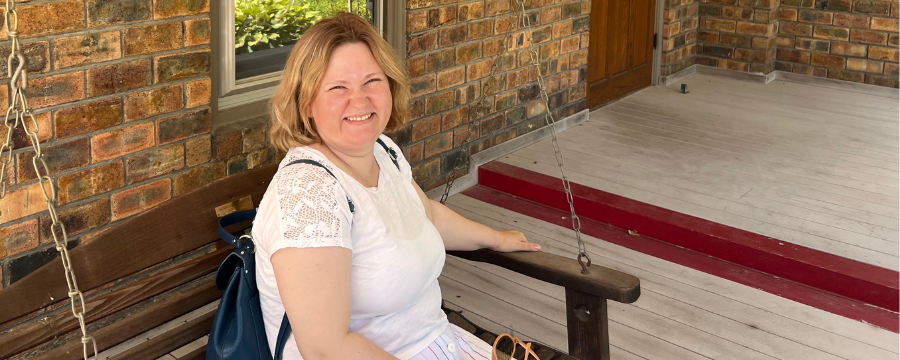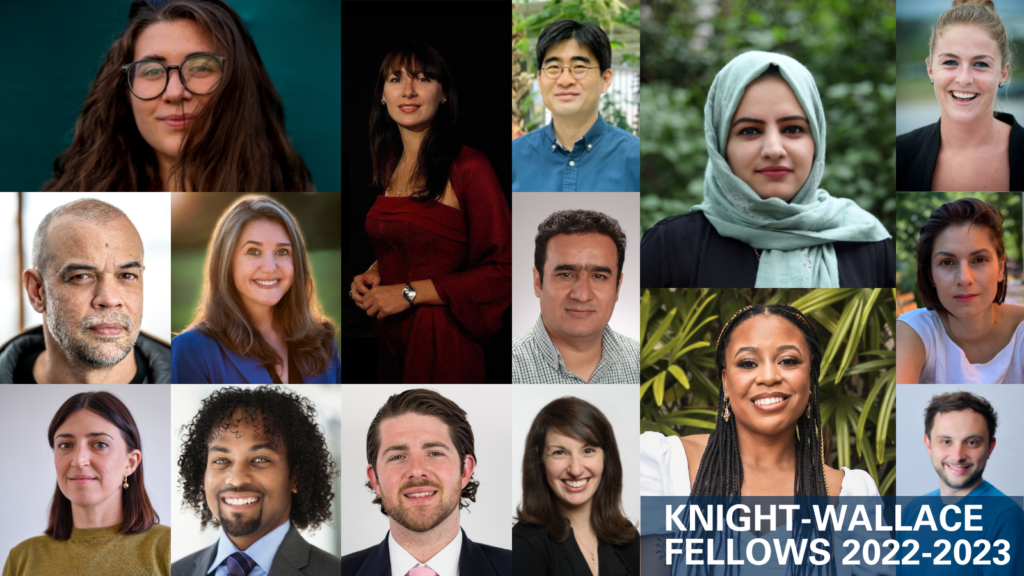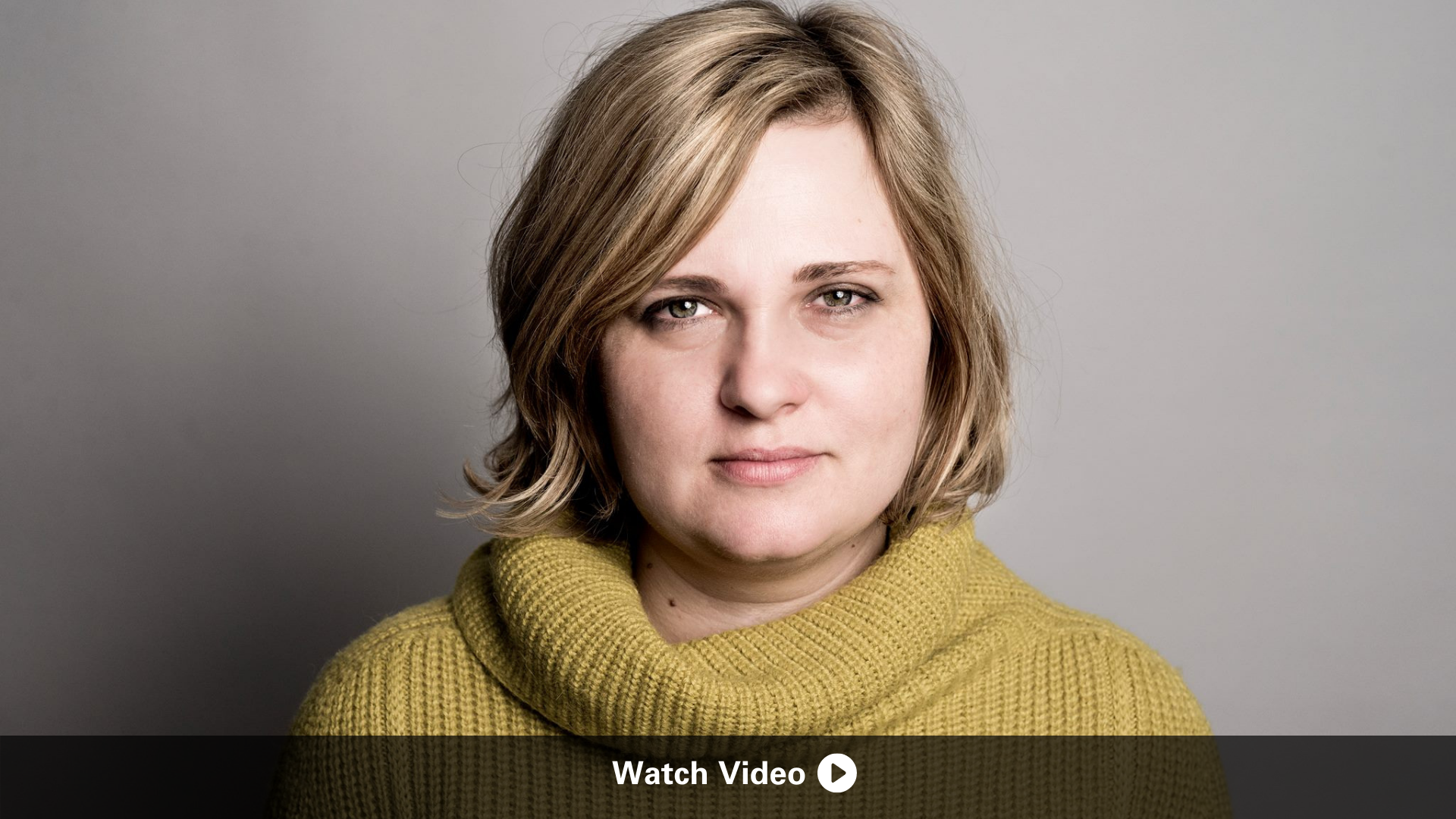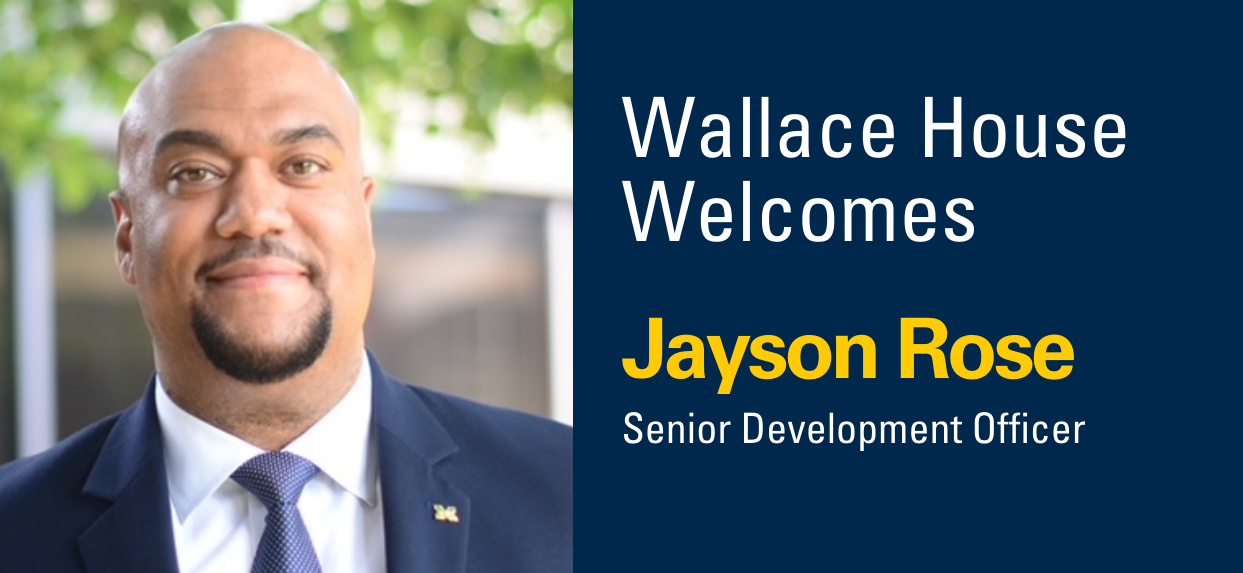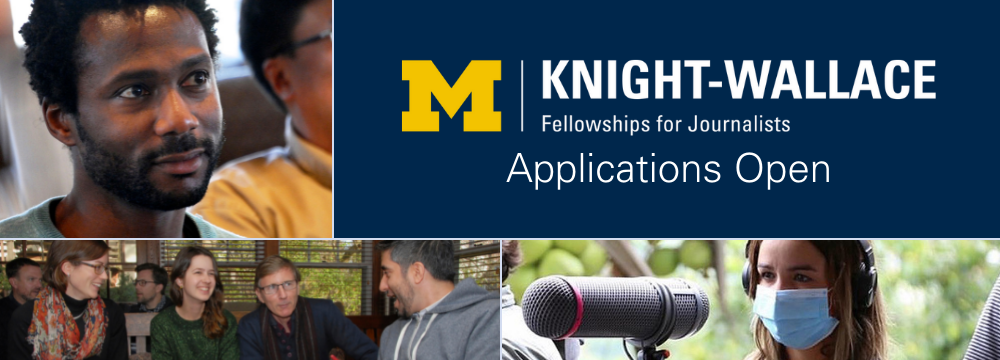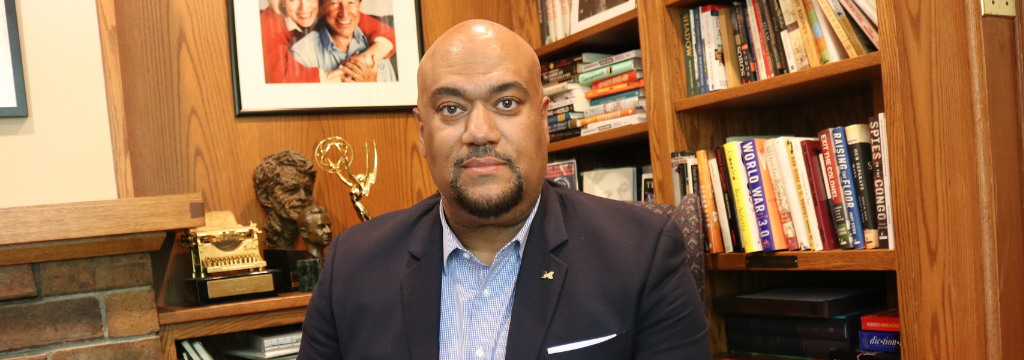
This interview appeared in the Fall 2022 issue of the Wallace House Journal.
Jayson Rose joined Wallace House in January 2022 as our first development officer. His work is critical as we strengthen our programs and respond to new opportunities. He’s set about introducing himself to all of our former Fellows going back to the program’s founding in 1973. His exuberant outreach has been met with gratitude and great stories (we’d expect nothing less of our alums). Lynette Clemetson asked Rose to take a little break and answer a few questions.
Lynette Clemetson: You’ve had in-person visits, calls, and Zooms with dozens of former Fellows. What have you learned?
Jayson Rose: I’ve connected with over 50 alumni in recent months from the U.S., Brazil and South Korea. I’ve learned how much the fellowship changed their lives, personally and professionally. Many have told me about how their time in Ann Arbor was a pivot point in their career, a time to regroup and refocus. I’ve also been learning how meaningful the relationships established have been and how many of our alums remain in contact with each other.
Clemetson: You’ve worked in university development for years. What’s the most exciting opportunity in connecting the work of Wallace House to donors and the mission of the university?
Rose: There is a tremendous opportunity to work with our campus partners to bring more attention to our mission, the urgency of our work, and to expand our constituent base. We are uniquely positioned to help donors who care about democracy and freedom of the press make an impact. Many people don’t know there’s an entity on Michigan’s campus that aligns with those ideals. I also believe we can help donors who want to create a legacy make a lasting impact by working with them to establish endowed gifts or planned gifts via their will or trust. Our goal is to give Wallace House the ability to have an impact on journalists’ lives well into the future.
Clemetson: You grew up around journalists. Your father, Jim Rose, is a longtime anchor and sports journalist in Chicago. Did that influence your interest in Wallace House?
Rose: My father has been in broadcast journalism for 41 years at ABC in Chicago. I have vivid memories growing up of all the hard work he put into his craft and the long hours he spent covering such a passionate sports town. He was, and continues to be, so thoughtful in his work and that made me grow up with a deep appreciation for journalism. The industry is facing numerous challenges, and the work of Wallace House is incredibly important to journalists who fight to tell the stories that aren’t easy. I am honored to have the opportunity to play a role in the evolution of such an incredible organization.
Clemetson: What do you do for fun? And an essential Wallace House question, what do you like to cook?
Rose: I enjoy exercising, catching a sporting event, and going on adventures with my wife, Kim, and our three kids, Cora, Carter and Ella. I have been learning how to become Mr. Fix-it, taking on projects around the house. And I enjoy new music and finding a new album to relax to when I have downtime. My favorite thing to cook is anything grilled. I love to grill a nice cut of steak. I also make a good grilled salmon with sriracha and honey glaze. Delish!
Clemetson: What new music caught your attention this summer?
Rose: Recently I’ve been enjoying a Nigerian singer-songwriter named Tems. Her album, “For Broken Ears,” was on repeat most of the summer for me.
Clemetson: You and I have something in common – we were both DJs in our younger years. I’ve been thinking about playlists for our 50th fellowship reunion in 2023. Any recommendations for a few hundred restless reporters who haven’t seen one another in a while?
Rose: If we are talking about moving a few tables and getting people on the dance floor, I might suggest:
“September” by Earth, Wind & Fire
“Don’t Stop Believin” by Journey
“Uptown Funk” by Mark Ronson featuring Bruno Mars
“Despacito” by Luis Fonsi
“Yeah!” by Usher
My DJ skills aren’t what they used to be, but you can’t go wrong with these.
Lynette Clemetson is the Director of Wallace House Center for Journalists, home of the Knight-Wallace Fellowships for Journalists and the Livingston Awards at the University of Michigan. She is a 2010 Knight-Wallace Fellow.


